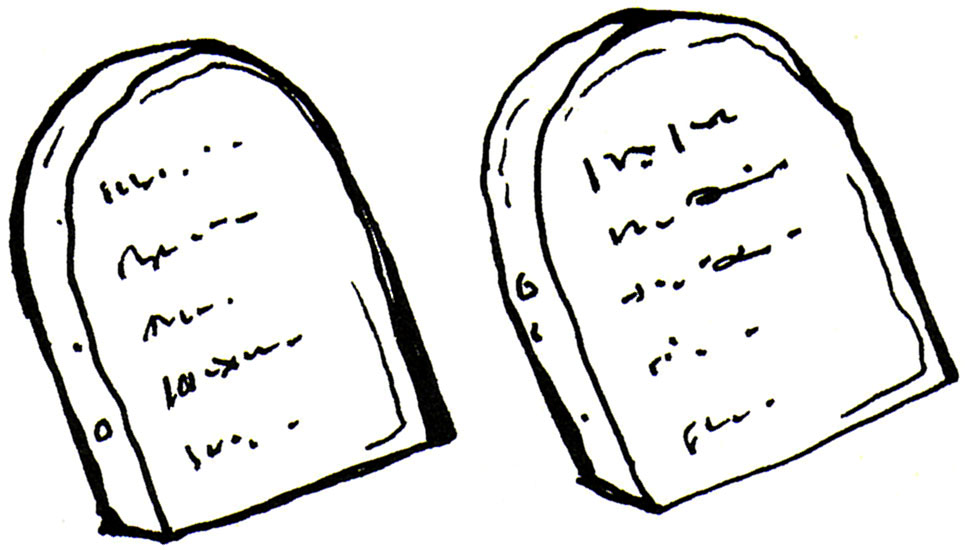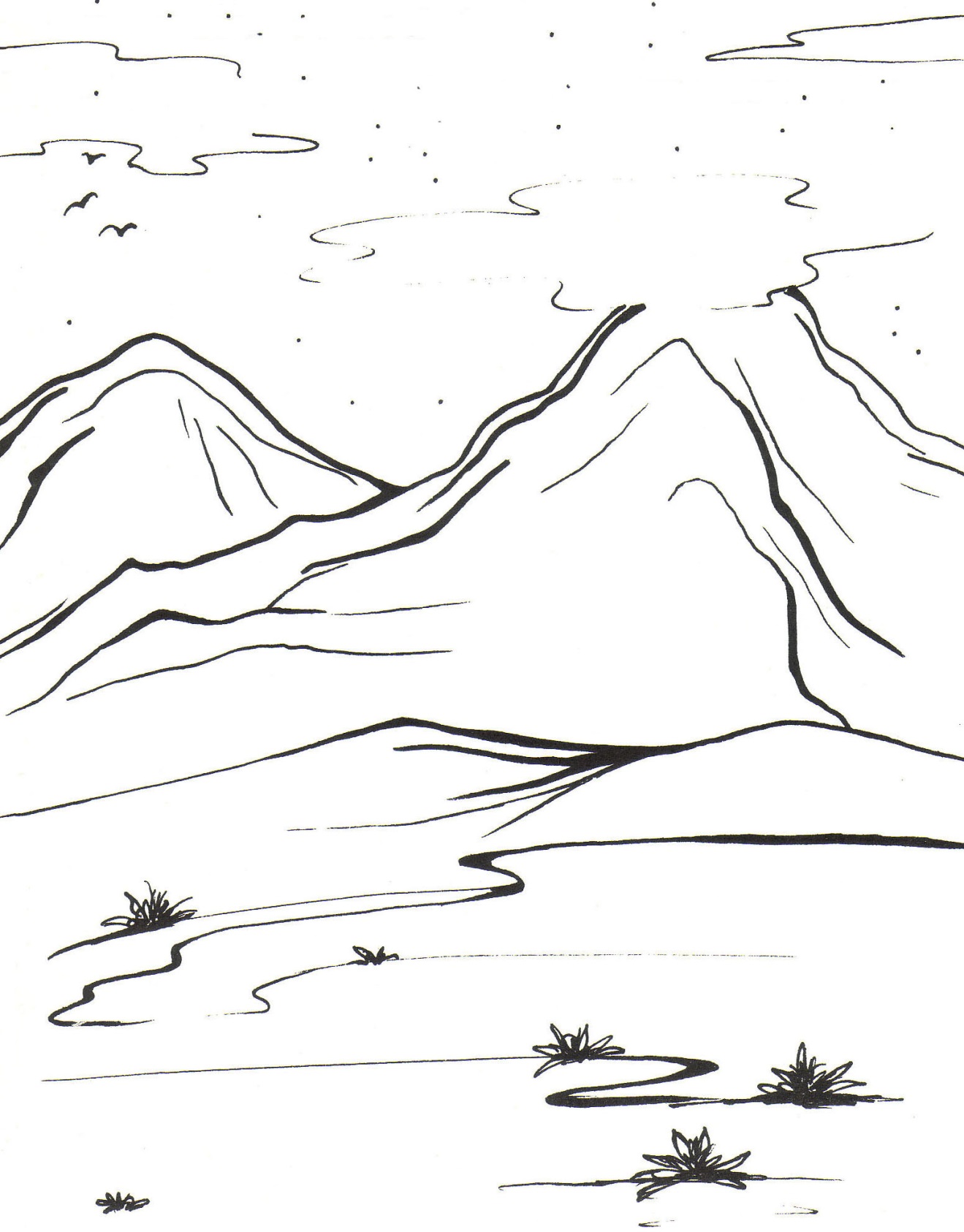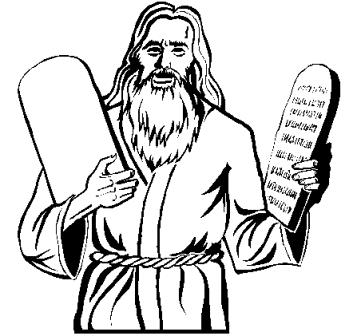

Mother"s Helper / Daddy"s Helper
MOSES AND THE TEN COMMANDMENTS
![]() Scripture Reading: Exodus 20
Scripture Reading: Exodus 20
Soon after Israel arrived in the wilderness of Sinai, Moses went up to the summit of Mt. Sinai to receive the law. Boundaries were set around the mountain, which the people and their cattle were not to cross. God commanded Moses to go back down the mountain and warn the people, lest they approach the mountain and die.
Two tables of stone were prepared. On these God wrote and gave to Moses the Ten Commandments. Deuteronomy 5:2‑3 says these commandments were given only to the Israelites. There are two accounts of these commandments, one in Exodus 20, and the other in Deuteronomy 5.
The first four commandments relate to man's duty to God. The last six regulate man's conduct with man. The commandments are easily understood.
The first was, “Thou shalt have no other gods before me.” Perhaps a better translation is “besides me” rather than before me. Jehovah made it clear that He was to be the only God Israel should worship. The importance of this is emphasized in the second commandment. They were ordered to make no “graven image.” No likeness of anything in heaven above, nor on earth, nor in the water. In other words they were to make no likeness of fowls, birds, man, beast or fish of the waters of the sea. God demanded total reverence from His people.
Third, they were not to take the name of the Lord, their God, in vain. God is very careful of His name and there was not to be then, or now, any use of His name in cursing or swearing.
The fourth commandment set the Sabbath (the 7th day) as the day of worship. It was a day of rest. No work was to be performed by any person or beast of burden.
The first commandment with a promise was number five. They were to honor their father and their mother that their days might be long in the land that God was giving them.
Several commands were given which forbade harming others. They were not to kill (or murder), commit adultery, steal, nor bear false witness. They had no right to take another person’s life. Adultery was also forbidden. Adultery is a violation of the promise of man and wife to each other. Stealing or taking that which belongs to others was also forbidden. Bearing false witness is telling lies about someone, causing them hurt. The Bible says, “Lying lips are an abomination to the Lord, but they that deal truly are His delight.”
The tenth commandment was, “Thou shalt not covet.” To covet is to have an unlawful or uncontrollable desire for something which belongs to another. This strong desire or covetousness tempts US to take something by “hook or crook.”
The Ten Commandments were the first Biblical record of written laws to God’s people. They were binding until the death of Christ.
Questions
1. Where was Moses? Why?
2. Were the people allowed to go?
3. How many tables of stone were prepared?
4. How many commandments were given?
5. Which commandments dealt with man’s relationship with God?
6. Whose name were they not to take in vain?
7. What was their day of worship called and what work were they to do on that day?
8. What is the first commandment with a promise?
9. What is false witness?
10. What is it to covet?
Drawings to Color



Observations for Parents and Children
1. There is only one real God. We are to worship and serve Him only.
2. God intended man to have one wife. Marriage must be maintained in love and trust.
3. It is never right to lie about another person. This not only hurts them, it hurts us.